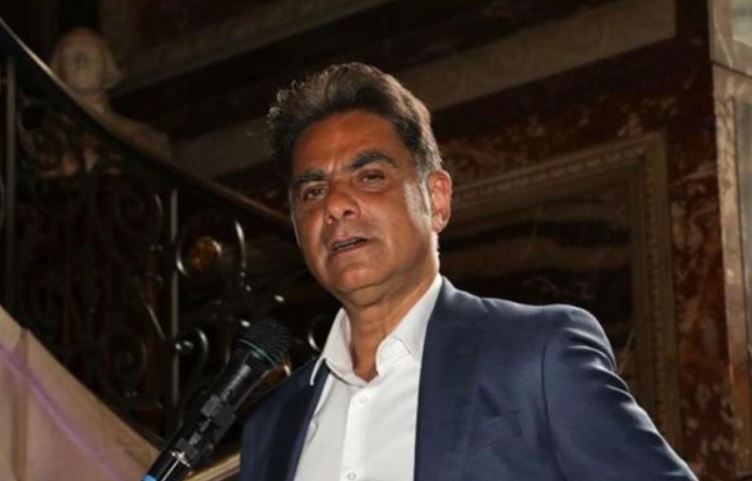Harut Sassounian
Publisher, The California Courier
Last week, I wrote about a scandalous incident when Armenian officials did not allow Mourad Papazian, a French Armenian community leader who has devoted his life to the defense of the Armenian Cause, to enter Armenia after arriving at the Yerevan Airport. Despite Papazian’s repeated questions at the airport as to why Armenian officials were banning him from entering the country, he was not given an answer. I will now comment on the latest developments in this case.
Read also
Initially, government officials told the media that they are unable to reveal the reason for Papazian’s expulsion in order not to violate his right to privacy. When Zareh Sinanyan, Armenia’s Chief Commissioner for Diaspora Affairs, was first asked why Papazian was banned from the country, he said that he had no idea. Sinanyan then wrongly claimed that the organization co-led by Papazian, the Coordinating Council of Armenian Organizations of France (CCAF), had no right to represent the entire French Armenian community, since it was just one organization. Contrary to Sinanyan’s statement, the CCAF is not just one organization, but a coalition of around 60 French Armenian organizations.
Later, one of Prime Minister Nikol Pashinyan’s unnamed aides gave a lengthy interview to the Armenpress wire service last week, alleging that Papazian was banned from Armenia for violating Chapter 2, Article 8, sections 1.k and 1.z of the law on “Foreigners.” The aide went on to claim that Papazian was one of the individuals who attacked Pashinyan’s motorcade in Paris on June 1, 2021. What happened to the government’s initial excuse that it cannot reveal the reason for Papazian’s expulsion to protect his privacy? The real reason for his expulsion was the Prime Minister’s intolerance to anyone who dares to oppose his regime.
Here are the true facts: I verified that Papazian was not involved in any attack on Pashinyan’s motorcade because he was not there. The protest was carried out by a group of young men who regrettably hurled tomatoes at Pashinyan’s motorcade. That is not a proper thing to do to Armenia’s leader while on foreign soil. Nevertheless, last year’s incident was viewed by the Armenian government to be so unimportant that the Embassy of Armenia in Paris did not even file a complaint with the French authorities.
Secondly, it is very strange that after the June 1, 2021 motorcade incident in Paris, Papazian visited Armenia on four different occasions and no one at the Yerevan Airport obstructed his entry. If the Prime Minister’s aide is serious about his baseless accusation against Papazian, why did the government not object to his entry to Armenia until a year later, during his fifth visit? The Prime Minister’s aide is thus acknowledging that Armenian officials are so incompetent that they cannot even implement properly their own decisions.
Furthermore, Pashinyan’s aide falsely claimed that there are media reports about the Paris incident, including video tapes on the internet showing Papazian’s and others’ protest. The fact is that there is no such video showing Papazian at that protest simply because he was not there. Had there been such a video, the Armenian government would have disseminated it widely to prove Papazian’s guilt.
Since the Prime Minister’s aide based his accusation of Papazian on Article 8, sections 1.k and 1.z of Armenia’s law on “Foreigners,” I found it interesting that section 6 of Article 8 of that same law lists the following government officials as the only ones who can have access to the black list of individuals banned from entering Armenia: “The staff of the President of Armenia, the national security agency, authorized police officials, Foreign Ministry officials, the courts and the prosecutor’s office.” Importantly, neither the Prime Minister himself nor his aides are on this list of officials authorized to access the black list. How did Pashinyan’s aide know that Papazian’s name is on the black list and the reason why he was banned from entering the country? This is an obvious violation of the law, the same law that Pashinyan’s aide quoted to justify banning Papazian. In a normal democratic country, this aide and his superiors would be prosecuted for breaking the law. What they have done to Papazian is an abuse of power. Armenia is not Pashinyan’s private house so he can decide whom to let in and whom to ban.
Finally, while the government is busy blocking an Armenian nationalist from entering the country, a widely circulated video on social media showed a Turkish extremist at the Armenian Genocide Memorial in Yerevan, sticking his tongue out, howling like a wolf, giggling hysterically, ridiculing the Genocide and making the hand gesture of the terrorist Turkish Grey Wolves group, while wearing the flag of a Turkish soccer club which has the crescent and the star, the emblem of the Turkish Republic. While it is not always possible for the police to prevent such ugly incidents, if Armenian officials were not so busy trying the silence their political opponents, they would have more time to deal with the real enemies of the Armenian nation. How ironic that an Armenian nationalist is banned from entering Armenia, at the same time a Turkish extremist is allowed to enter the country and insult the memory of the Genocide martyrs.
It would have been far better for Armenian officials to tell the truth by acknowledging that they should not have expelled Papazian from Armenia, instead of inventing more lies to cover up their initial wrongful action.





















































